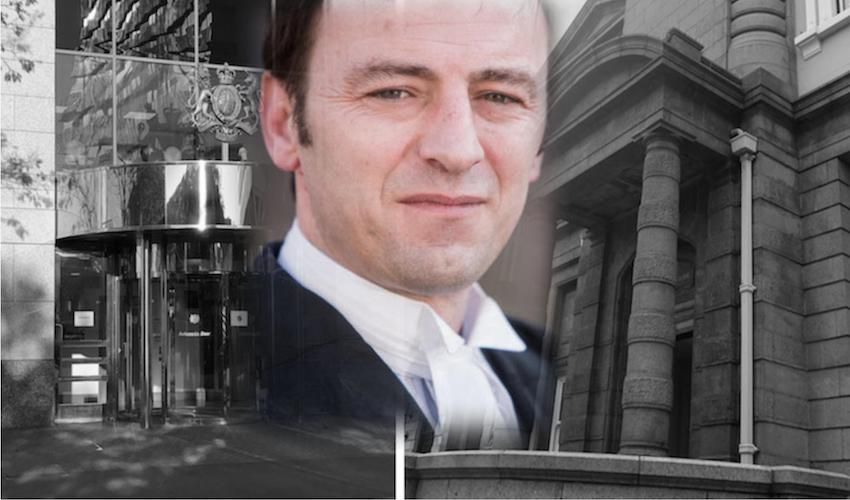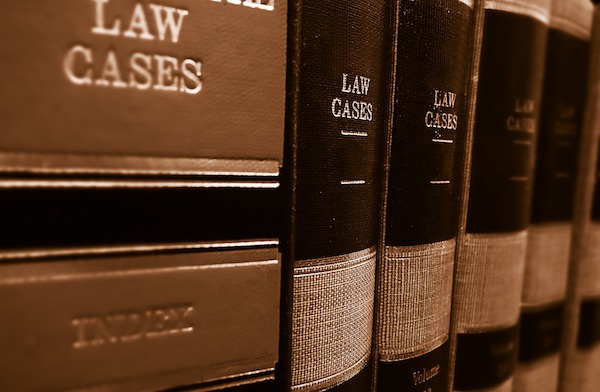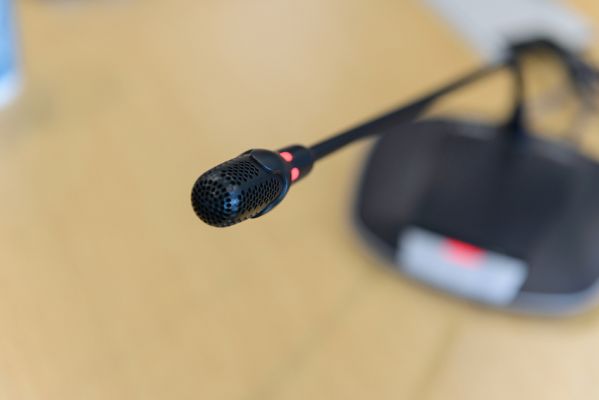

A local advocate is calling for Jersey's courts to reconsider their approach to anonymity.
Advocate Olaf Blakeley, who argues that defendants shouldn’t be named publicly unless they are found guilty, says that there are also other ways the court can reconsider its approach to reporting restrictions, particularly given that so much information is available online.
The lawyer’s call for change comes after he represented Bailiwick Publishing in the Magistrate’s Court, where it was fined £4,000 after Express named a family involved in an international case.
In his latest column for Express, Advocate Blakeley reflects on the ‘morality’ of identifying those who find themselves in the island’s court system…
Pictured: Express was fined £4,000 for the identity breach in the Magistrate's Court.
“Sometimes I’m astonished, in addition to being disappointed, by decisions to prosecute in Jersey’s courts. I also sigh at times at the lack of progress and dynamism of our laws and procedures.
For me, I feel (yes, lawyers have feelings) as though not enough thought is applied when prosecutions commence and, when they do commence, how the procedure can be so unfair to defendants.
Previously I’ve written at length about amending the law to give anonymity to defendants until conviction. Nothing has happened. However, I noted some time ago the Bailiff said perhaps the law should change to provide protection to defendants standing trial until such time as they are found to be guilty.
Silence in such circumstances is golden. When a prosecution fails, and the defendant is acquitted, I often think how I would feel and cope if I were that defendant: shamed, embarrassed, shunned and probably jobless.

Pictured: "Not enough thought is applied when prosecutions commence and, when they do commence, how the procedure can be so unfair to defendants."
I would certainly feel bitter and have resentful feelings of being treated unfairly. Anyway, reverting to a previous career, I can predict the future: the law will change in the UK, and then Jersey will follow suit some years later, like a puppy dog trailing behind the pack. Another lost opportunity for Jersey’s legal system to lead the way, and to shine in excellence.
Of course, when I am representing a client I act in their best interests, and try and persuade the tribunal of my submissions. In that respect I’m biased. I’m expected to be. But, as a human, I still have a moral compass and reflect on what I believe to be right and wrong, and what is fair and unfair.
I accept fully, it is a matter of opinion, but there are some basic principles I can’t believe people would deny. One is that defendants should be treated equally; they should be afforded the same equal rights in the court process.
That didn’t happen in one case in which I was involved. The defendant had been convicted after trial in the Magistrate’s Court. He appealed. The normal procedure is for a transcript to be prepared for the appeal court to consider. Unfortunately, the recording equipment at trial failed and no transcript could be produced. His appeal – the Royal Court said – would have to be based on notes made by the Magistrate and the lawyers.
Other defendants who appeal will have the benefit of the transcript. The Royal Court could have re-heard the witnesses but decided that was not appropriate. In short, the procedure for this defendant at appeal was very different than for others. Unfair. Different processes. Yes, a technical issue with electronics, but the defendant should not suffer as a result. Silence – in this case – was most certainly not golden.

Pictured: Advocate Blakeley spoke of a recent appeal case where his client couldn't rely on a court transcript as the recording equipment at trial had failed.
Then, more recently, there was a disparity between the treatment of ‘local’ media, and the national and international media in the prosecution of Lighthouse Media CI Ltd, the company which parents this Bailiwick Express publishing house.
Express was prosecuted under the Children’s Law because it named family members involved in an adult trial. There is a strict prohibition under that law from identifying children involved in court proceedings (as a witness and/or victim and in other certain circumstances). It’s a law which I consider very important indeed.
Identifying a child in such circumstances can cause harm and that should not be allowed to happen. The court should apply full force to ensure children are protected (just as I say adults should be protected, until guilt is established). But, not everything is black and white, not even a newspaper.
The case was reported nationally and internationally. Names printed, videos posted, photographs set, and even family members were giving interviews. The internet was covered with stories available to the world at large.
That’s why the medium is called the WORLD WIDE web. Furthermore (you couldn’t make this up) a foreign Police force issued a full statement and published it on the internet, clearly setting out the names of those involved, identifying the children.

Pictured: With the advent of the internet, Advocate Blakeley says it poses complications for court reporting restrictions.
The prosecution decided it would not be investigating (and therefore not prosecuting) any other media in respect of the naming of people involved. While I accept it may be hard to launch a prosecution against national media because of jurisdictional issues, it is strange visiting journalists present in court were not pursued.
The law punishes not just those who ‘publish’ but also those who cause to be published. And what of those people involved in the case? Those people who are under the jurisdiction of the court: what of those if they disclose names in media interviews/publications?
Express admitted the breach and was correct to do so. There had been a breach. But, there are matters of public interest involved. Is it in the public interest to prosecute in such circumstances? I say not, because the gagging becomes ridiculous, even though I fully support the law protecting children. To illustrate that, I revert to yet another career when I worked as a news and current affairs presenter, for the BBC.
According to the Assistant Magistrate presiding on the case, Express was liable because it was a company located in Jersey. This was interchangeably cited as the jurisdictional catch, along with – occasionally – that editorial decisions were made in Jersey (even though for this case the decision to run the story, was made by the Editor while on holiday in Italy….sorry, I digress).
On local radio, national news is very often ‘fed’ from the UK by a ‘news provider’ after which the local radio presenter reads the local news. Just think how ridiculous the situation: the national newsreader reads the story giving the names; then the local news reader presents the local news featuring the same story but says, “the defendants can’t be named for legal reasons.” It’s nothing short of preposterous.

Pictured: The judge considered that Express was liable because it's located in Jersey.
Only two minutes prior the listener has been told the names! But, that national medium cannot be prosecuted eitherbecause the company is not in the jurisdiction, or the editorial decision is made outside of Jersey (but I’m confused on which is really the court’s view on this jurisdictional point).
The result is obvious. If all local media – those producing a local circulation – have their company registered outside the island, and they make their editorial decisions outside the island (just to be safe, until the jurisdiction point is definitively pronounced) they can ignore local courts and laws.
However, what makes this case even more bizarre, is other media who did not name names, yet provided enough information for the reader to identify the persons. The law prohibits identifying children or doing something which is “likely to identify.”
Providing bits of information from which a reader can establish the identity is often referred to as ‘jigsaw identification’ – you put the pieces together. Thus, in this instant case where there is such widespread reporting available at the click of a mouse, once a medium has reported certain facts from which identification can be obtained, I say the offence is committed.
And other media did report in ways which, in my personal opinion, gave the pieces of the jigsaw from which the picture (lots of them) could materialise. The resultant effect would mean no local media could ever report on the story, yet everyone outside the island could.
Silence is golden when it protects innocent children from ridicule, embarrassment or any type of scarring; unless such silence is already broken by shouting from internet rooftops."
Express fined £4,000 for identity breach
Comments
Comments on this story express the views of the commentator only, not Bailiwick Publishing. We are unable to guarantee the accuracy of any of those comments.